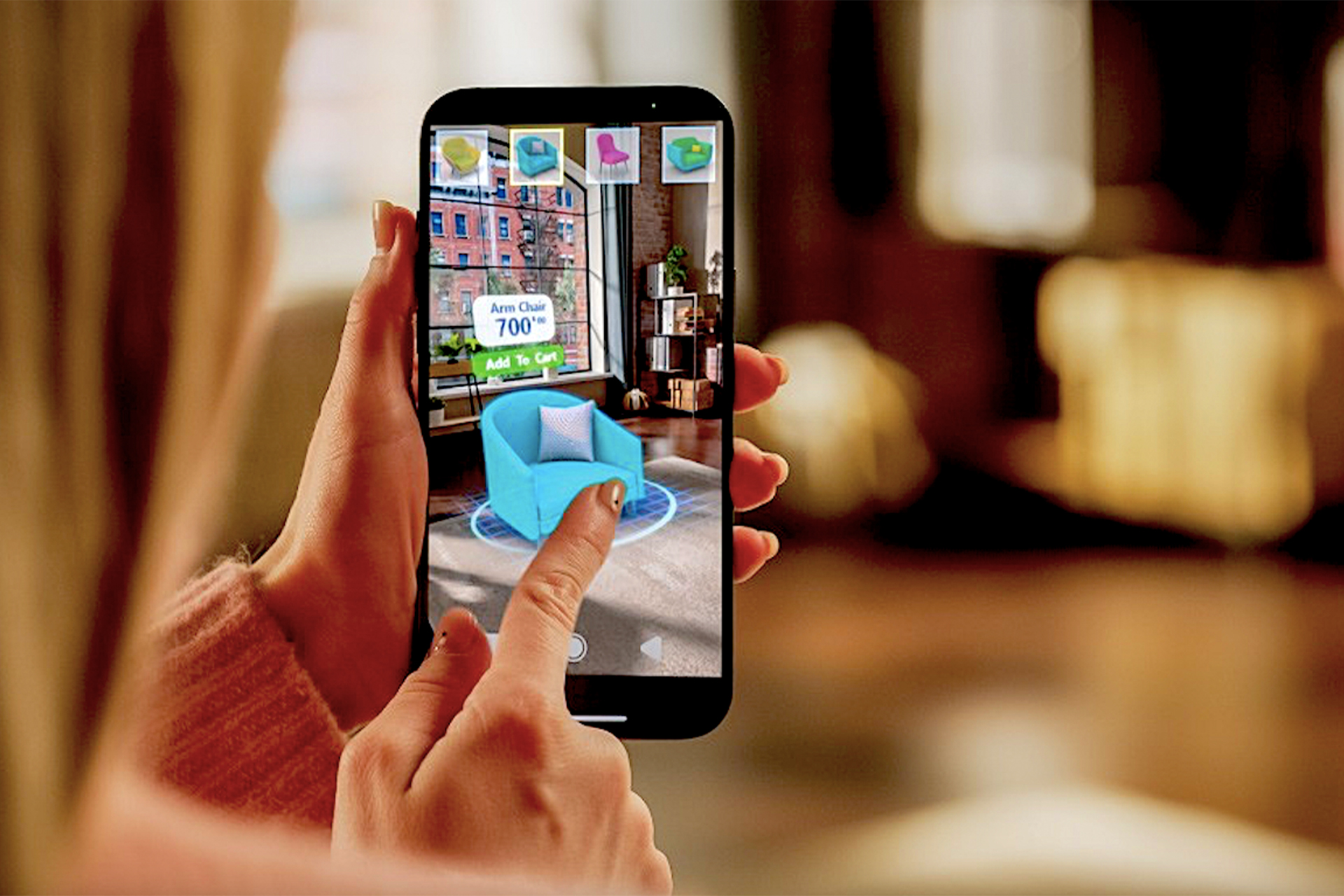Walmart has developed a system of platforms as the basis of a combined proprietary artificial intelligence, GenAI, augmented reality and immersive commerce function that the company maintains will allow it to accelerate its entry into a new retail era.
The platform, as the company described it, will enable hyper-personalized, convenient and engaging shopping across Walmart stores, Sam’s Clubs, apps and various virtual environments.
Walmart has developed a system of proprietary AI platforms to power GenAI technology, with the latest being Wallaby, a series of retail-specific large language models, the root of artificial intelligence, that it is applying primarily in the creation of customer-facing experiences. Walmart trained Wallaby using decades of its own data so that the company can combine with other LLMs and generate responses to prompts that are highly contextual and tailored to the Walmart environment. Wallaby also can respond in a natural tone that aligns with Walmart’s core values, the company stated.
By leveraging a combination of GenAI platforms, Walmart also has created a more personalized version of its AI-powered customer support assistant, the company pointed out. Now, the assistant recognizes who the shopper is from the start and goes beyond just understanding consumer intent to support activities, such as finding orders and managing returns. In testing, customers reported an overall smoother interaction that helped them deal with issues quickly and on their own. Walmart added that it is actively building dozens of additional GenAI tools for consumers, associates and partners that leverage its AI platforms, including enhanced care assistants for Sam’s Club and Walmart International.
Among its initiatives, Walmart has developed a Content Decision Platform, aligned with its Digital Trust Commitments and Responsible AI Pledge, as a basic tool for creating shopping experiences tailored to the individual customer. The platform leverages AI-based technology to understand customers and establishes a GenAI-powered tool to predict the type of content they might like to see on Walmart-operated websites. The technology is already active within select areas of walmart.com. As the technology is deployed, Walmart will create a unique homepage for each consumer that delivers a more personalized connection. The company expects to roll out the platform through its operations across the United States by the end of next year. Walmart indicated that its plans call for applying the platform’s underlying technology in the company’s Canada and Mexico markets to deliver personalized product recommendations, setting a new standard in global retail.
As it advanced its adaptive retail efforts, Walmart became the first major retailer to pilot real-world commerce on Roblox and, more recently, launched Walmart Realm, an immersive commerce destination. Walmart is using its immersive commerce APIs to enter alpha testing. The company will also use its immersive commerce APIs to launch a new experience with Zepeto later this year. Within the immersive avatar-based social platform, customers will be able to buy products from Walmart’s No Boundaries brand for their virtual avatars and match real-world items for themselves.
“A standard search bar is no longer the fastest path to purchase; rather we must use technology to adapt to customers’ individual preferences and needs,” said Suresh Kumar, Walmart global chief technology and chief development officer, in announcing the adaptive retail advancements. “At the heart of our platform strategy is developing common global core capabilities that are built once and deployed across Walmart U.S., Sam’s Club and Walmart International. As a global company with multiple business segments, this enables us to move with speed as we bring consistent experiences to all our customers and members.”





